
Learning English Online should / shouldn’t (grammar)
Another use of should (also similar to ought to) is to indicate a kind of obligation, duty or correctness, often when criticizing another person: You should be wearing your seat belt. (obligation) I should be at work now. (duty) You shouldn't have said that to her. (correctness) He should have been more careful.

Should or Shouldn't English ESL worksheets pdf & doc
We use should and shouldn't to give advice or to talk about what we think is right or wrong.; You should means something like I think it is a good idea for you to do it.; You shouldn't means something like I think it is a bad idea for you to do it.; Should is used to express the opinion of a speaker and often follows I think or I don't think.; Examples. You look tired.
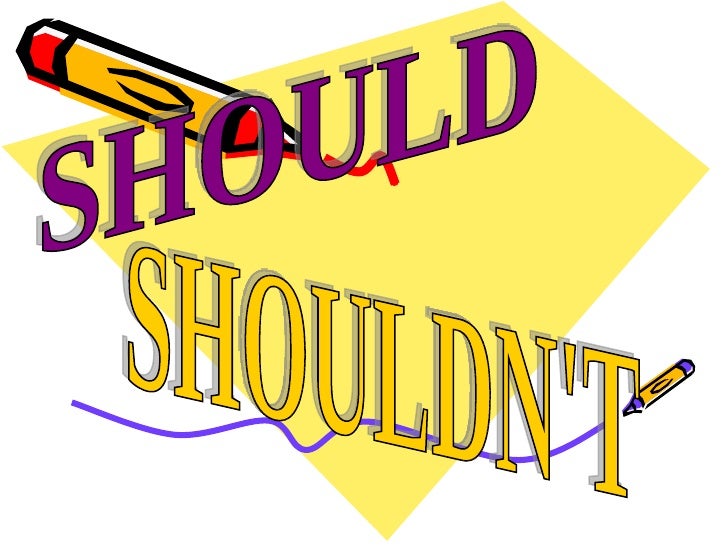
Should
Should and shouldn't- modal verbs exercises. Elementary level esl.

Pin on Ingl3102 Grammar and Writting Skills Unit 8
Enjoy English lessons! Music (in pop star part) by Krzysztof Pawczuk (http://krzysztofpawczuk.pl/)
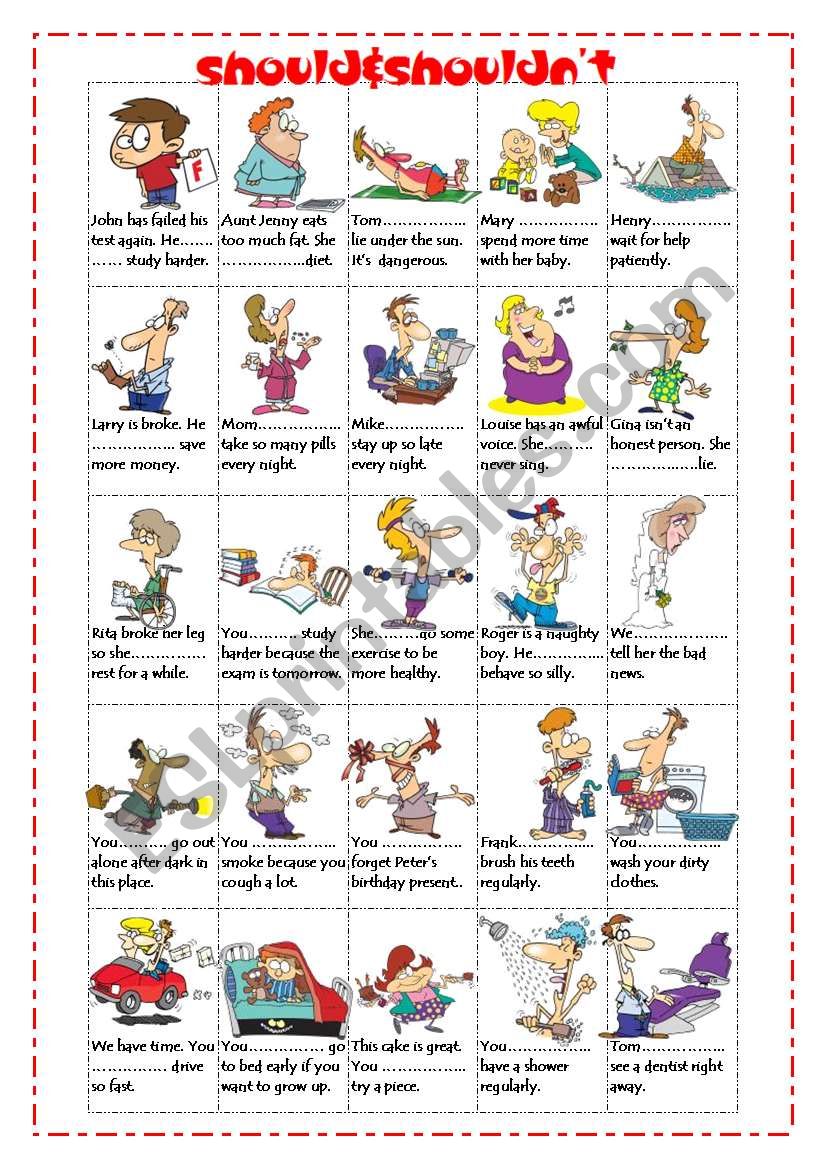
SHOULD&SHOULDN´T( for advice and suggestion) ESL worksheet by rose95
The meaning of SHOULDN'T is should not.
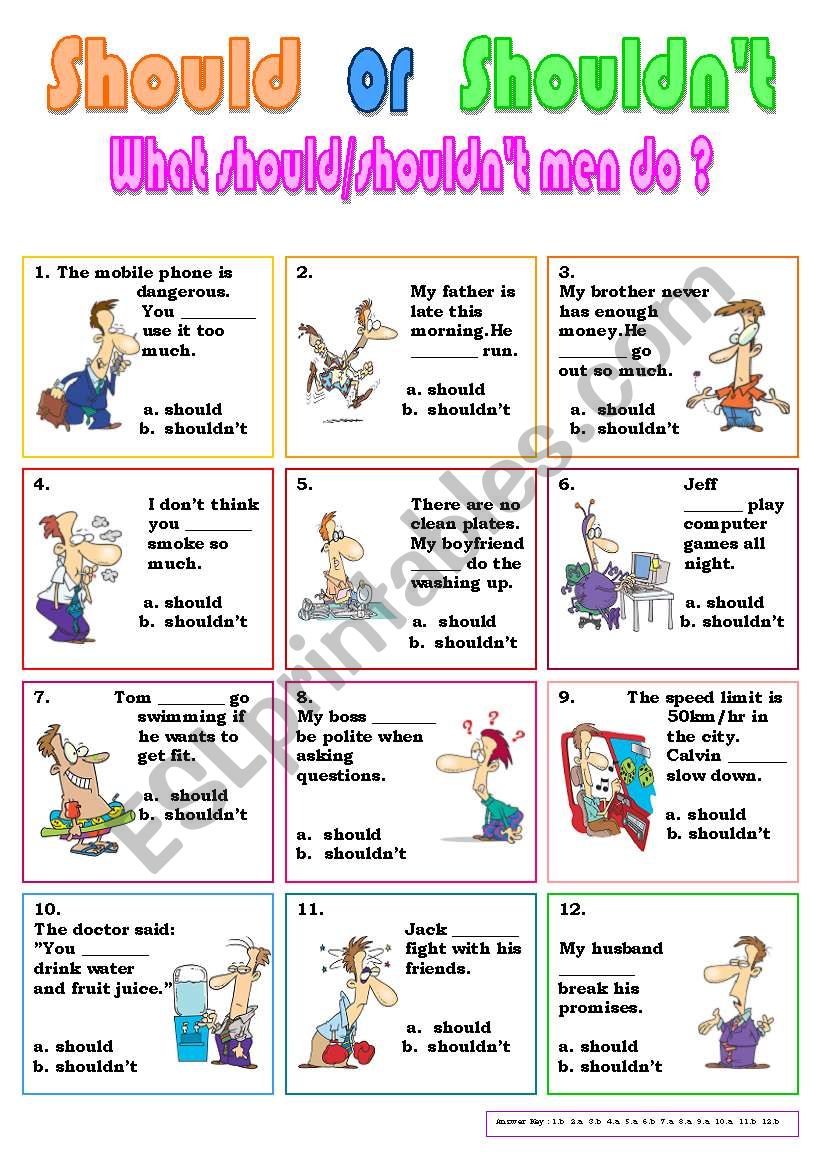
should or shouldn´t ESL worksheet by Ayfer Dal
Should comes first in the verb phrase (after the subject and before another verb): I should go home now. It should probably be sunny at that time of year. Not: It should may be sunny. or It may should be sunny.. The negative form of should is shouldn't. We don't use don't, doesn't, didn't with should: There shouldn't be many.
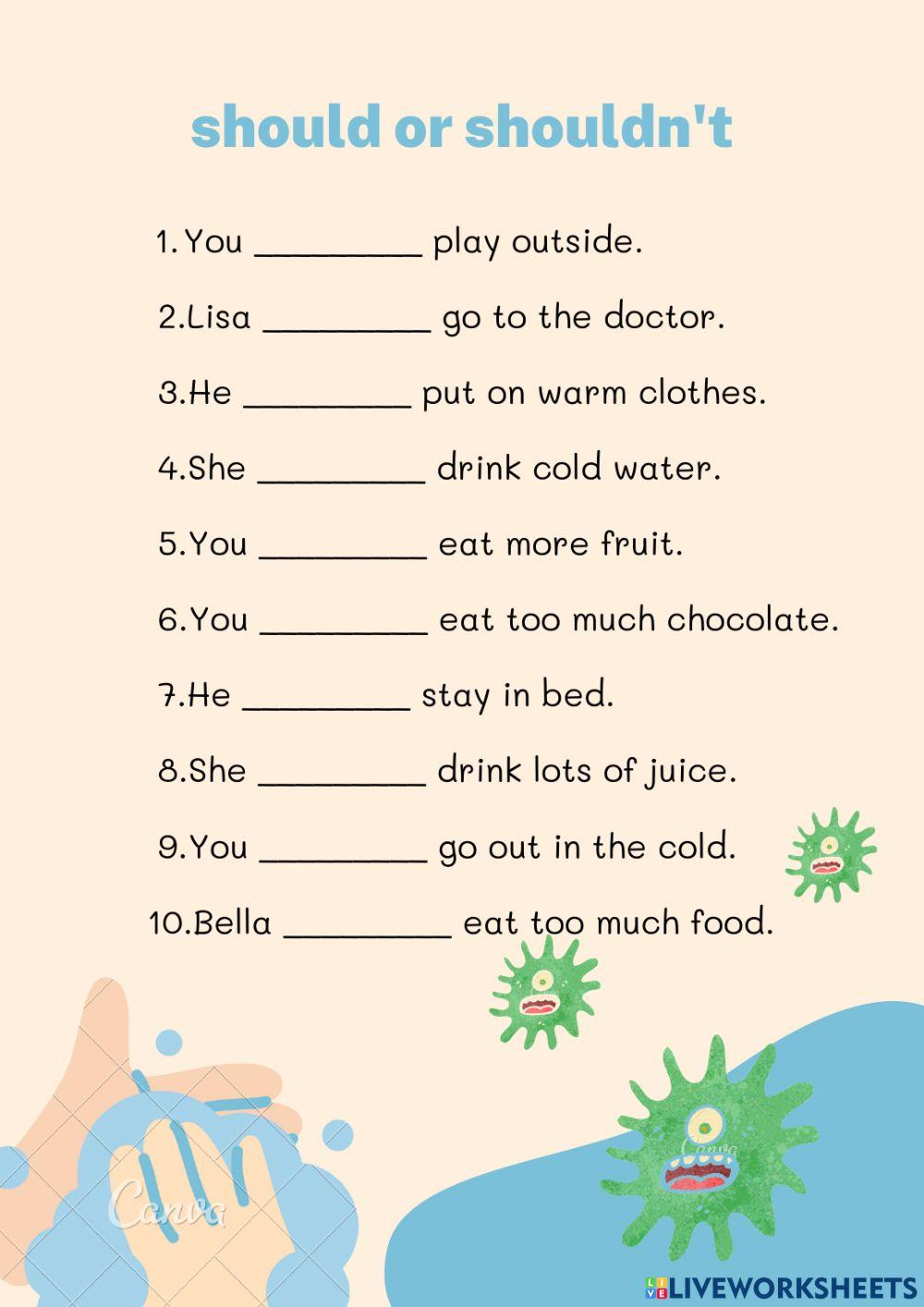
Shouldshouldn't online pdf worksheet Live Worksheets
Exercise 1. Complete the sentences using should, shouldn't and the words in brackets ( ). 1 You have a great job; you (change) it. 2 You (drink) so much coffee; it's bad for your blood pressure. 3 The government (help) people. 4 It's an incredible film.
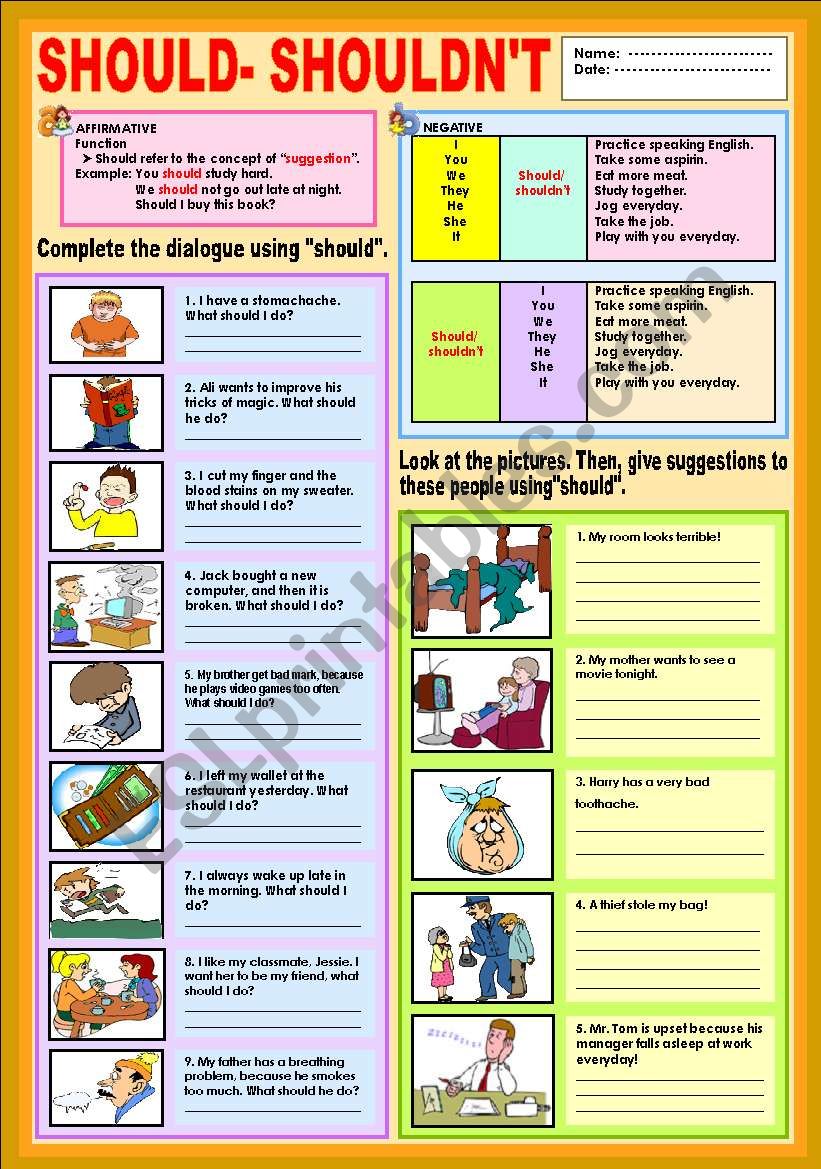
SHOULD SHOULDN´T ESL worksheet by Ayrin
Grammar Board Game Should. 36 squares, each asking for a different comparison (speak for at least 1 minute per roll) Print in b/w; or color for projectors or laminated prints. Pair work or small groups. Level: Elementary to Pre-Intermediate.
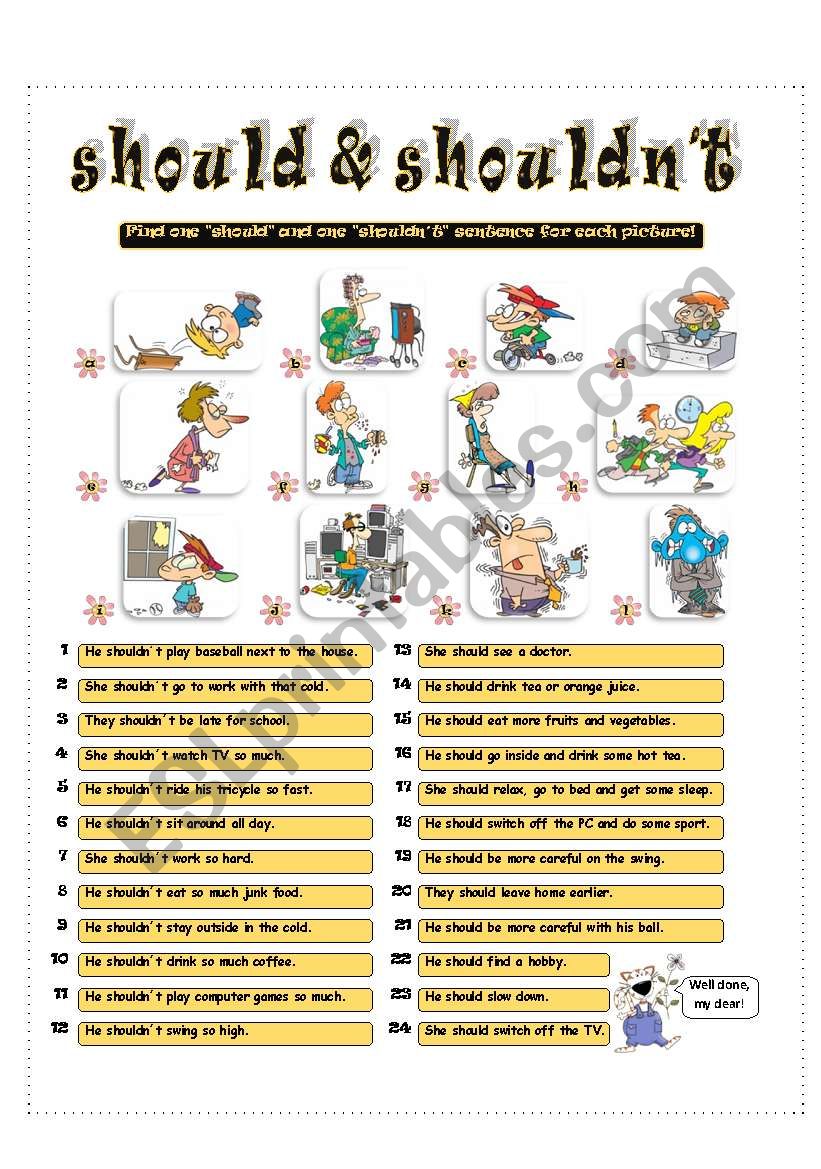
SHOULD & SHOULDN´T ESL worksheet by lisa.weix
Learn how to use SHOULD or SHOULDN'T to give advice, suggestions, opinions and recommendations in English. Should is a modal verb, and modal verbs are follow.
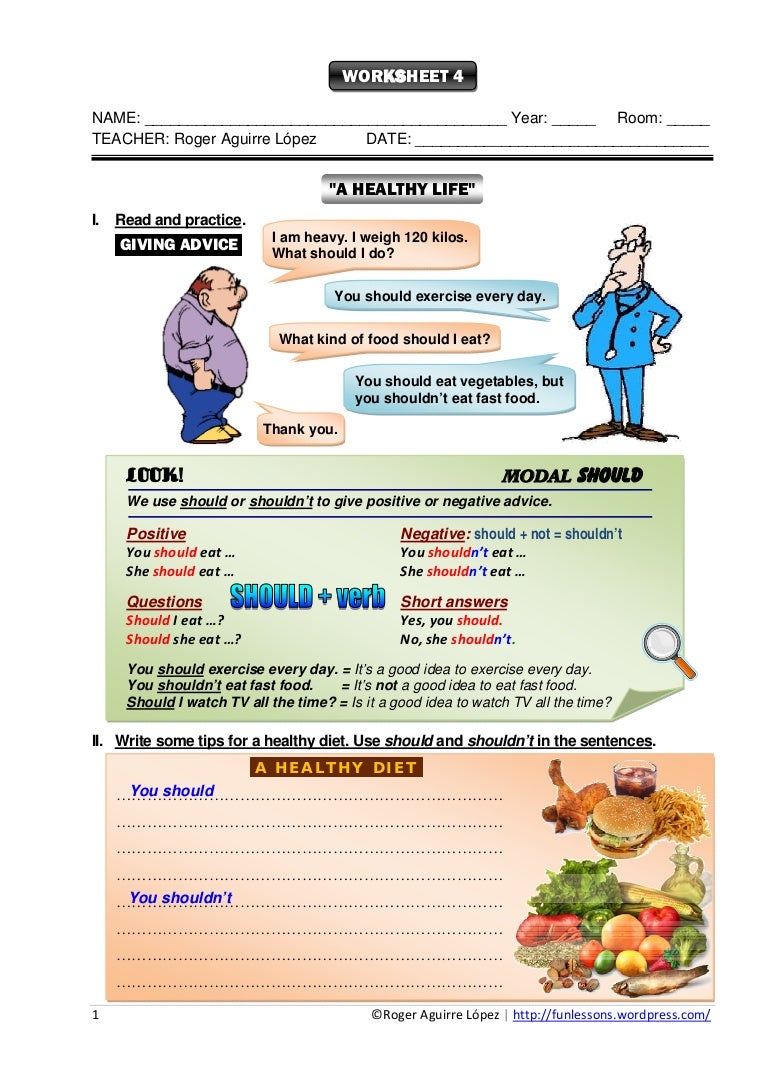
Worksheet 04 Should Shouldn't
I have noticed that some Americans write "shouldn't it" in sentences. For example: Why is the dog outside, shouldn't it be inside? Is this correct grammar in American English? Because I
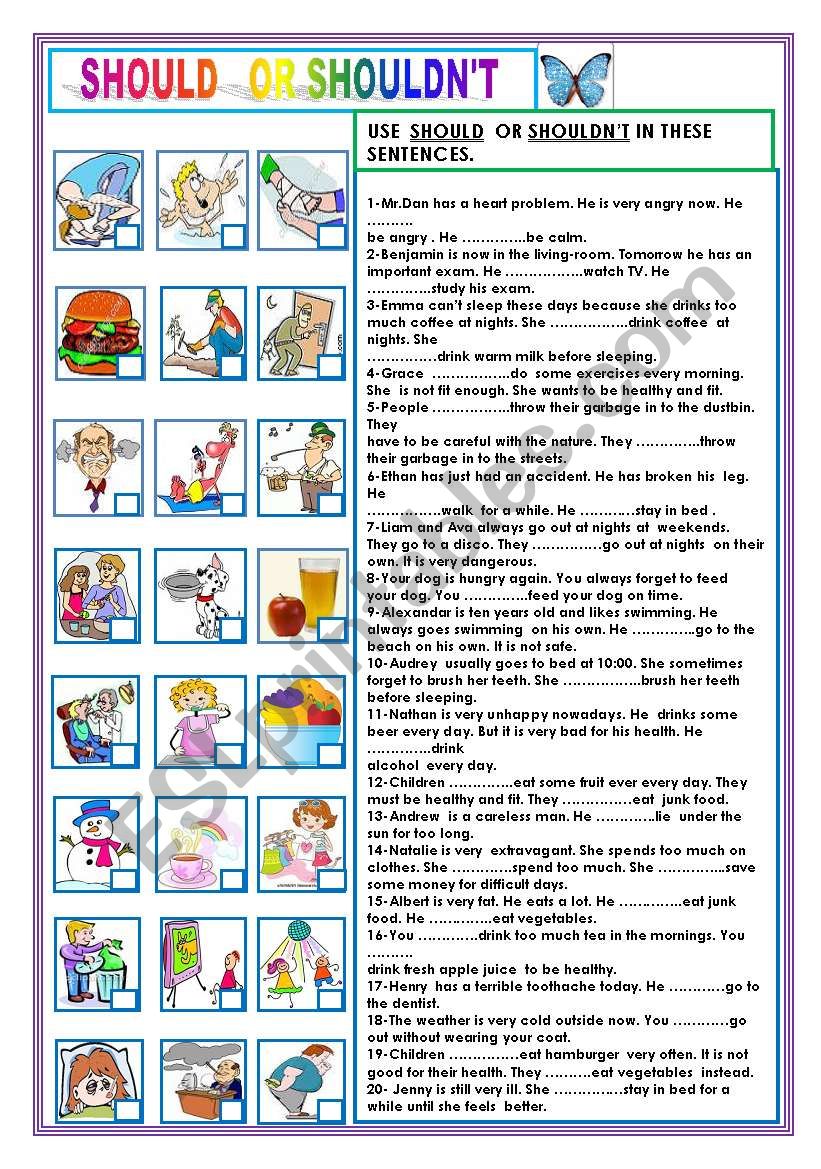
SHOULD OR SHOULDN´T ESL worksheet by nivida
Students > Solutions > Elementary > Grammar > Unit 5 - Exercise 2 - should / shouldn't. Grammar; Everyday English Unit 5 - Exercise 2 - should.

Should and shouldn't activity Activities, Language, Sentences
1 Answer. Both questions are asking for a normative statement in response to somebody's belief. However, there is a difference in emphasis. As I said in an answer to the question "'should They?' or 'should they be?'?": These are actually both fine, but they have a different emphasis. They believe this.
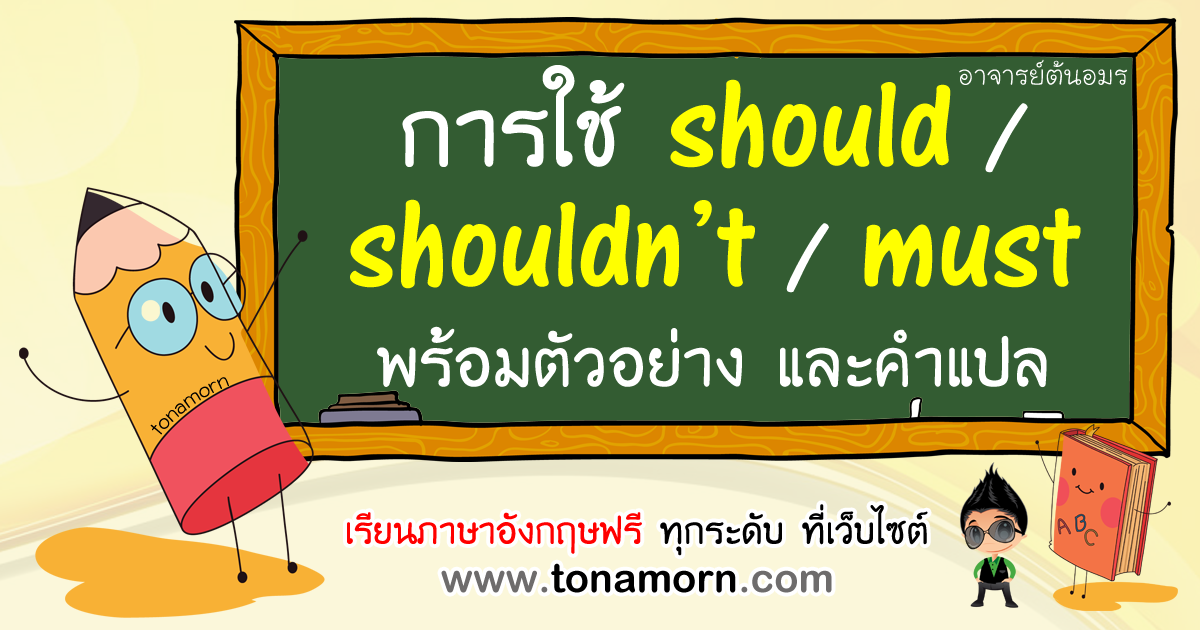
การใช้ should / shouldn't / must ตัวอย่างประโยค พร้อมแปล
Should - English Grammar Today - a reference to written and spoken English grammar and usage - Cambridge Dictionary

Should shouldn't
Should, shouldn't. Modal verbs. A2. Pre-intermediate English grammar and exercises. We use the verb 'should', 'shouldn't' to give somebody advice.
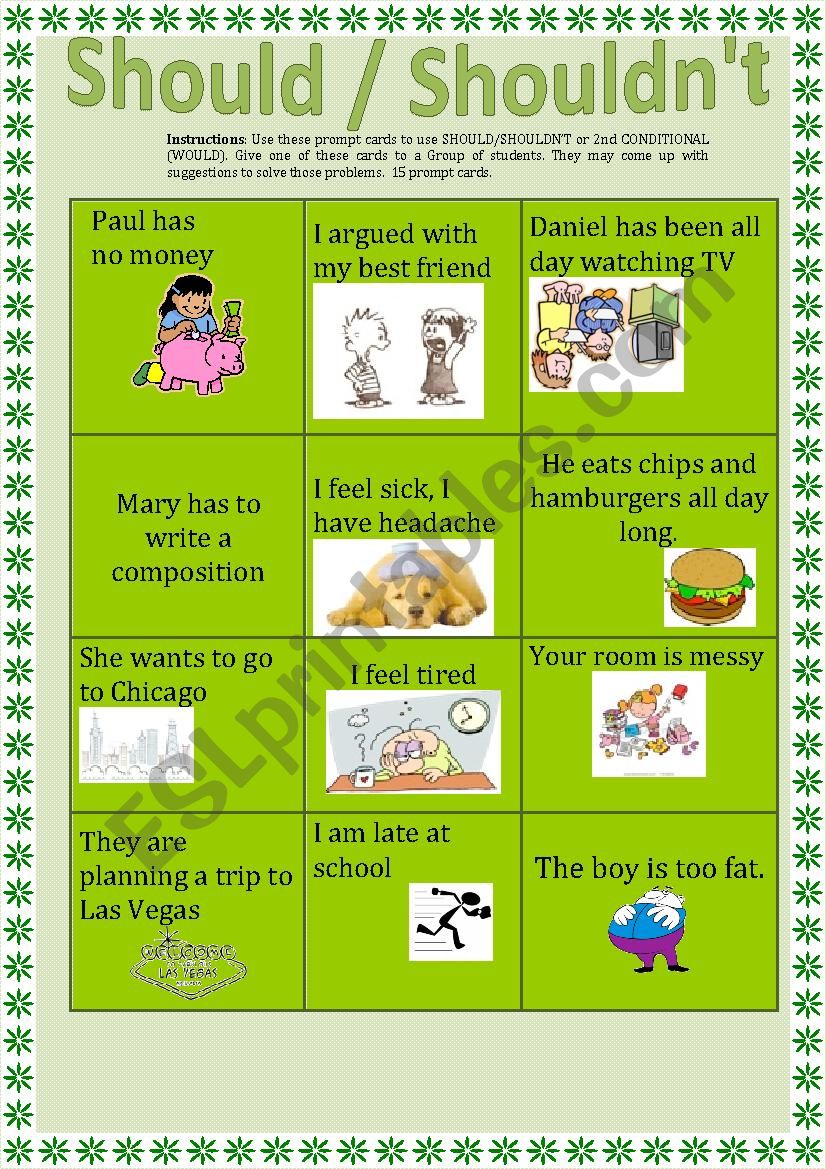
Should, shouldn´t (Problem cards) ESL worksheet by crovira
This worksheet may be used as a test or writing or speaking exercises on health problems and solutions. 51185 uses. K1000O. HEALTH. SHOULD. SOME VOCABULARY AND GRAMMAR EXERCISES ABOUT THE HEALTH, ALSO THIS WORKSHOP INCLUDES USEFUL DEFINITION OF THE FIRST KIT AID STUFF. 43374 uses. rmartinandres. SHOULD - SHOULDN'T.
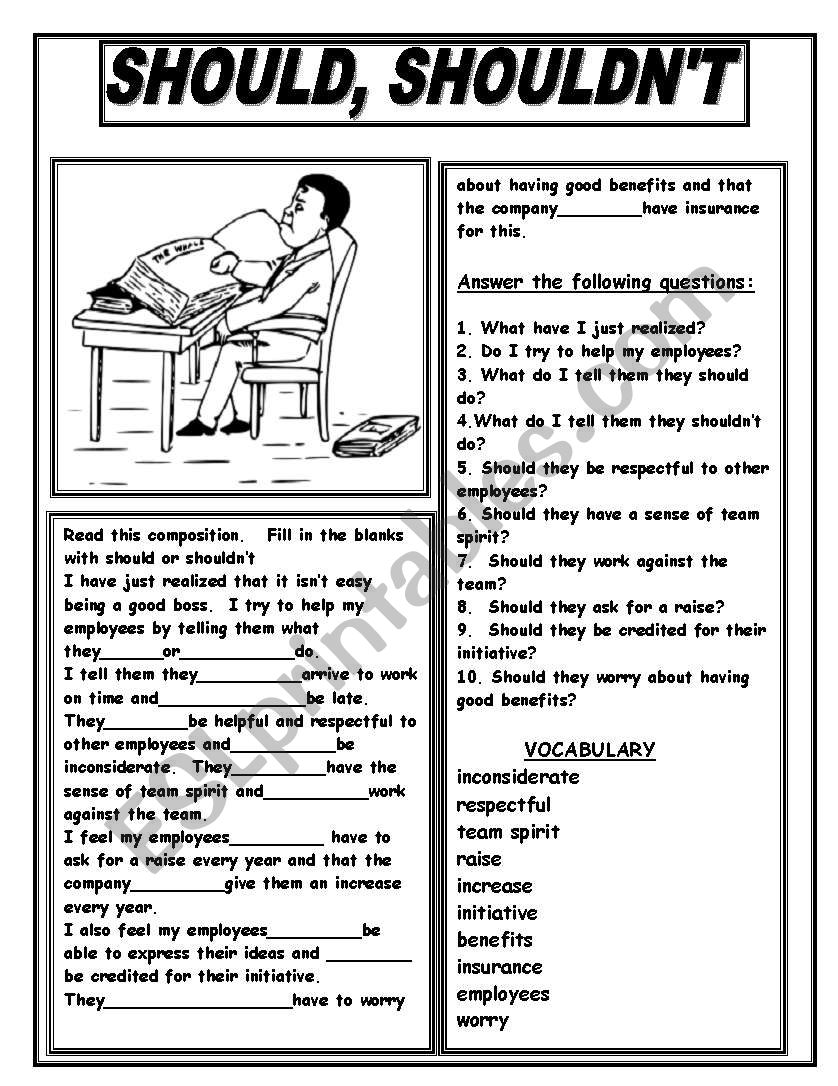
SHOULD, SHOULDN´T STORY ESL worksheet by GIOVANNI
Modal Verbs: Should/Shouldn't. Modal verbs in English grammar express the ability, permission, obligation, possibility, etc. Modal verbs only have one form, meaning that they are used in simple present and don't have past simple and past participle forms. However, some modal verbs can have alternative forms which can be used in different tenses.